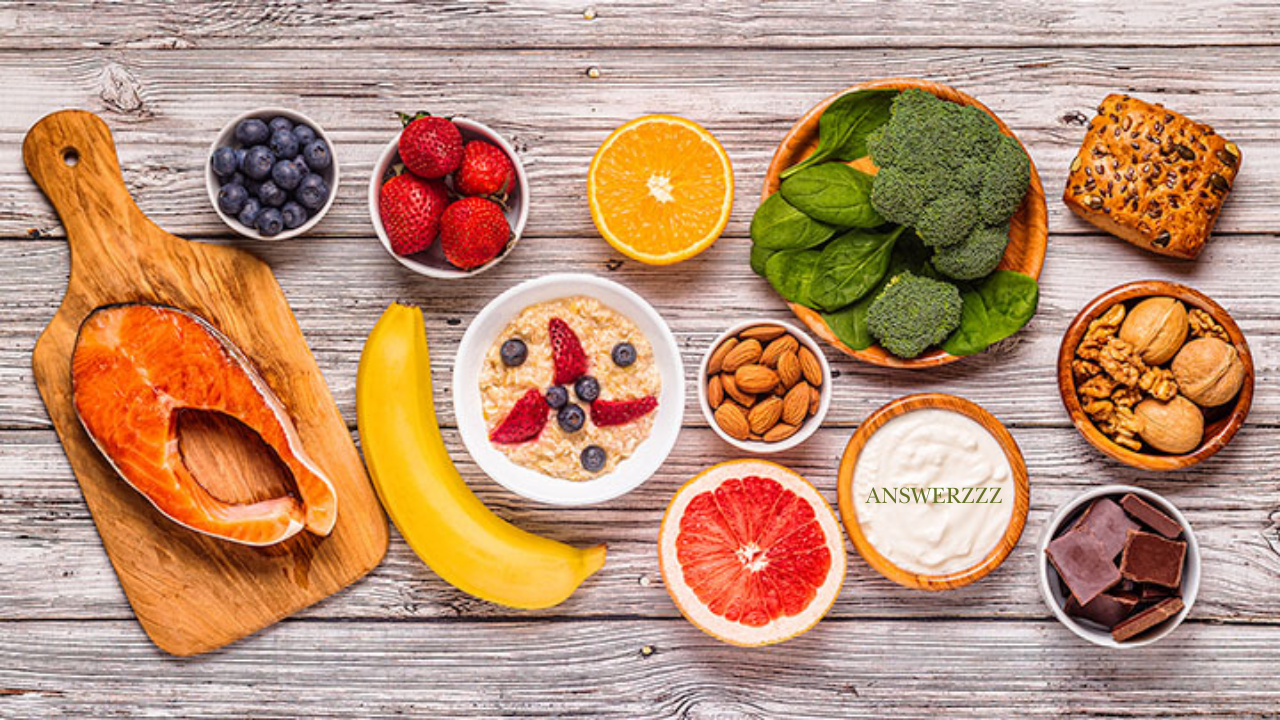In 2025, maintaining optimal energy levels and focus has become even more critical as we juggle work, personal commitments, and personal goals. With advancements in technology and evolving work environments, people are increasingly looking for ways to stay sharp, energized, and at their best throughout the day. One of the key factors in sustaining high energy and mental clarity is proper nutrition.
While diet is often overlooked, it directly impacts both physical and mental well-being. By fueling our bodies with the right nutrients, we can improve concentration, reduce fatigue, and improve overall cognitive function. Whether you’re working from home, in the office, or managing a busy lifestyle, the food you consume can be the deciding factor in how well you perform.
This article will explore some of the most effective nutrition tips for staying energized and focused in 2025.

1. Prioritize Whole, Nutrient-Dense Foods
To fuel your body and mind, it’s essential to focus on whole, unprocessed foods. These foods are packed with vitamins, minerals, fibre, and healthy fats, which are key to maintaining long-lasting energy and mental sharpness.
What to Eat:
- Fruits and Vegetables: Packed with antioxidants, vitamins (such as Vitamin C), and fibre, fruits and vegetables can help protect brain cells and improve cognitive function. Leafy greens like spinach, kale, and broccoli are rich in magnesium, a mineral that supports proper brain function.
- Whole Grains: Foods like quinoa, brown rice, oats, and barley provide slow-releasing carbohydrates that ensure sustained energy throughout the day.
- Healthy Fats: Omega-3 fatty acids, found in foods such as fatty fish (salmon, mackerel), walnuts, and flaxseeds, support brain function and focus. Healthy fats are also present in avocados and olive oil, which provide lasting energy without causing blood sugar spikes.
2. Optimize Your Protein Intake
Protein is essential not only for muscle repair but also for maintaining focus and mental clarity. It stabilizes blood sugar levels and helps regulate your energy levels throughout the day.
What to Eat:
- Lean Proteins: Include lean proteins like chicken, turkey, tofu, legumes, and beans in your meals. These are less likely to cause energy crashes compared to processed protein sources.
- Eggs: Known for their high-quality protein and nutrient density, eggs also contain choline, a nutrient that supports brain health.
- Nuts and Seeds: Almonds, walnuts, chia seeds, and pumpkin seeds are excellent sources of protein and healthy fats, helping you feel satisfied and mentally sharp.
3. Hydrate to Stay Energized
Dehydration is one of the leading causes of fatigue and difficulty concentrating. Staying hydrated throughout the day is critical to maintaining high levels of energy and focus.
How to Hydrate:
- Water: Aim to drink at least 8 cups of water daily, adjusting based on your activity level. Hydration is crucial for keeping your brain and body functioning at their best.
- Herbal Teas: Green tea and other herbal teas are great for hydration, plus they contain antioxidants that promote overall health. Green tea also contains L-theanine, an amino acid that enhances focus and reduces stress.
4. Avoid Sugar Spikes and Crashes
Consuming large amounts of sugar may provide a quick burst of energy, but it’s often followed by a sharp crash, leaving you feeling sluggish and unfocused. This can disrupt both physical and mental performance.
What to Do:
- Choose Low-Glycemic Foods: Low-glycemic foods like sweet potatoes, oats, and non-starchy vegetables release energy slowly, helping to maintain steady blood sugar levels.
- Limit Processed Sugars: Try to avoid sugary snacks and drinks, especially those that contain added sugars. Instead, opt for fruit, which provides natural sugars along with fibre, vitamins, and minerals.
- Focus on Fiber-Rich Foods: Fiber helps slow down the absorption of sugar into the bloodstream, preventing energy dips. Whole grains, fruits, and vegetables are great sources of fibre.
5. Eat Balanced Meals
Consuming balanced meals that include a mix of macronutrients—carbohydrates, protein, and healthy fats—is key to sustaining energy levels and mental focus. When you eat balanced meals, you ensure that your body has a steady supply of nutrients to keep you feeling fueled throughout the day.
Meal Composition:
- Complex Carbohydrates: These slow-digesting carbs provide a steady supply of glucose to the brain, enhancing focus. Examples include whole grains, sweet potatoes, and legumes.
- Protein: A key player in stabilizing energy and regulating appetite. Protein helps slow the absorption of sugar and balances your blood sugar levels.
- Healthy Fats: Omega-3 fatty acids and monounsaturated fats help improve cognitive function and prevent energy crashes.
- Fibre: High-fiber foods, such as vegetables, fruits, and whole grains, support digestion and ensure sustained energy.
6. Time Your Meals and Snacks for Optimal Energy

When you eat is as important as what you eat. Spacing out your meals and snacks can help prevent energy dips and keep you focused.
Meal Timing:
- Breakfast: Don’t skip breakfast. A healthy breakfast containing protein, fibre, and healthy fats, such as oatmeal with nuts or eggs with avocado, will set the tone for your day.
- Small, Frequent Meals: Eating small meals every 3-4 hours helps maintain energy levels. Include snacks like nuts, yoghurt, or fruit to keep your blood sugar stable.
- Pre-Workout Snacks: If you’re planning a workout, have a small snack that contains protein and carbs about 30-60 minutes beforehand to fuel your body.
7. Incorporate Superfoods
Superfoods are nutrient-dense foods that can provide an extra boost to your energy and cognitive function. Incorporating these foods into your diet will ensure you’re getting a variety of beneficial nutrients.
Superfoods to Include:
- Berries: Blueberries, strawberries, and other berries are rich in antioxidants that fight free radicals and enhance memory and focus.
- Chia Seeds: Packed with omega-3 fatty acids, fibre, and protein, chia seeds support brain health and maintain energy levels.
- Turmeric: Containing curcumin, an active compound with anti-inflammatory properties, turmeric can improve cognitive function and protect the brain from ageing.
- Dark Chocolate: In moderation, dark chocolate (at least 70% cocoa) provides antioxidants and can enhance focus and alertness.
8. Be Mindful of Caffeine
Caffeine is a well-known stimulant that can boost energy and mental alertness. However, excessive consumption can lead to jitteriness, anxiety, and sleep disturbances, which will ultimately hurt your energy levels and focus.
How to Consume Caffeine:
- Moderation is Key: Aim to limit your caffeine intake to 1-2 cups per day. Opt for green tea, which contains less caffeine and additional compounds like L-theanine that support focus.
- Avoid Caffeine Late in the Day: Drinking caffeine too late can interfere with sleep, which is critical for mental clarity the following day.
9. Support Gut Health for Better Focus
Emerging research has shown that gut health plays a significant role in mental health and cognitive function. A healthy gut microbiome can enhance brain function, boost mood, and improve focus.
How to Improve Gut Health:
- Probiotic-Rich Foods: Foods like yoghurt, kefir, kimchi, and sauerkraut are rich in probiotics, which support a healthy gut microbiome.
- Prebiotics: These are found in foods like bananas, onions, garlic, and asparagus. Prebiotics feed the good bacteria in your gut, supporting gut health.
- Fiber-Rich Diet: Fiber from vegetables, fruits, and whole grains supports digestive health and can improve brain function.
10. Don’t Forget About Sleep
While not directly related to nutrition, sleep is integral to maintaining energy and focus. Proper sleep helps with cognitive processing, memory consolidation, and emotional regulation.
Tips for Better Sleep:
- Sleep Schedule: Stick to a consistent sleep schedule by going to bed and waking up at the same time each day.
- Limit Stimulants: Avoid caffeine and large meals close to bedtime to ensure a restful night’s sleep.
- Create a Sleep-Friendly Environment: Make your bedroom dark, cool, and quiet to encourage optimal rest.

In 2025, staying energized and focused is essential for navigating the demands of modern life. Proper nutrition, which includes consuming nutrient-dense whole foods, hydrating well, and timing your meals for optimal energy, can make a significant difference in how you feel and perform. By adopting these top nutrition tips, you can maximize your cognitive function, maintain stable energy throughout the day, and improve your overall health.
Remember that small, consistent changes in your diet can lead to big improvements in your daily energy levels and focus, allowing you to tackle even the busiest days with vitality and mental clarity.
Creating a Financial Safety Net: Emergency Fund Tips for 2025



